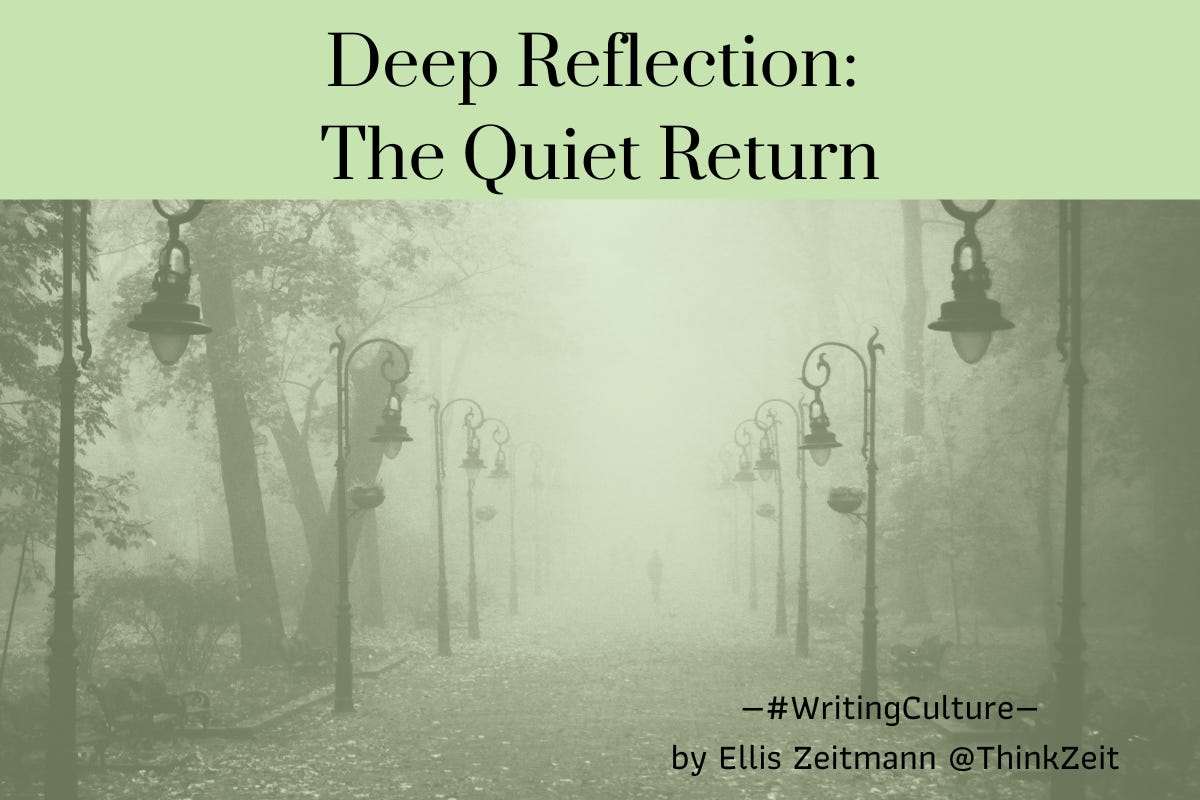Deep Reflection: When Strength Meets Mortality
How a forgotten poem, peak vitality, and the specter of death reveal the hidden architecture of resilience

🖌️ There is a strange quiet that arrives when the body is at its strongest, yet the mind begins to circle the idea of death.
This is not panic. It is not fear.
It is the soft gravity of awareness, what some might call clarity and others might describe as time catching up.
This curious state brought to mind Thanatopsis, a poem tucked away in the collective adolescent memory. Once underlined in a school anthology, it now resurfaces with quiet counsel.
It speaks of the “last bitter hour,” certainly, but its deeper power lies elsewhere. Thanatopsis does not echo Achilles, who sought immortality through remembered glory. Instead, it turns inward. It offers the quiet dignity of living with full awareness that permanence was never promised.
The Hidden Anxiety of Health
What if vitality, when fully realised, reveals the very truth it quietly tries to conceal?
The more one feels invincible, the more visible death becomes. Freud might have called this the death drive, a deeper force emerging beneath the illusion of control. It reflects a subconscious recognition that the body, no matter how finely tuned, remains on borrowed time.
Health, in this light, is not only a triumph.
It also becomes a mirror.
We live in an era that celebrates biohacking, longevity, and the endless pursuit of optimisation. Yet there is something haunting about reaching peak condition while time continues to move. It is like a well-preserved ruin, slowly overtaken by ivy.
Thanatopsis and the Stoic Sublime
Bryant’s poem does not preach. It watches and records.
When he writes:
The hills
Rock ribbed and ancient as the sun, the vales
Stretching in pensive quietness between;
The venerable woods, rivers that move
In majesty…
he is not concerned with the individual but with the return to something vast and shared.
In his vision, death is not a catastrophe. It is a convergence. A return to the totality of things.
There is a Stoic quality in this vision, yet it departs from the strictness of Marcus Aurelius.
Bryant offers not obligation, but awe.
In doing so, he invites us to reconsider our mourning, not as resistance to death, but as reverence for the continuity of being. This is a continuity in which the self dissolves into soil, wind, river, and root. Death, in this view, is not the end of life but a quiet return to the greater rhythms that shaped it.
The Resilient Unconscious
Resilience is often mistaken for the ability to rebound quickly.
But through the lens of psychoanalysis, it may be better understood as the capacity to remain intact within contradiction.
To feel strong and yet contemplate death is not a psychological error.
It is the psyche operating at its most subtle, balancing what cannot be mastered with what must still be embraced.
Jung might describe this as the integration of the shadow.
Death becomes less of an intruder and more of a quiet presence, one that brings the current moment into sharper relief.
Living with the Clock in View
There is wisdom in facing what we cannot escape.
When physical strength is met with the contemplation of mortality, a unique aperture opens. In this space, living does not shrink into dread but expands into precision.
Time slows into presence, inviting us to notice what we once passed over.
Small acts gain new meaning, anchoring us to the only certainty we possess: the present moment.
A cup of tea ceases to be routine and becomes a ritual.
A conversation transforms into a memory already in formation.
This awareness is not morbid.
It is an invitation to depth.
Closing Meditation
The convergence of vitality and mortality is not a paradox in need of solving.
It is a truth to be absorbed fully.
To be physically strong and mentally aware of death is not a contradiction.
It is, in many ways, a form of grace.
And perhaps that is the true message of Thanatopsis.
It does not claim death is beautiful.
It quietly reminds us that presence is.
What’s Next?
As we reflect on the coexistence of strength and mortality, let us ask:
Can resilience truly exist without first learning to befriend the inevitable?
The most profound innovation rarely begins with disruption.
It often begins with quiet acceptance and the poetry that follows.
👉 Subscribe for free to Zeitmann’s Deep Reflections and hit the bell 🔔 for weekly insights into mortality, resilience, memory, and meaning.
Be continued…
—#WritingCulture— by Ellis Zeitmann for ThinkZeit
#WritingCulture #PoeticThinking #CreativeWriting #DeepReflections #Thanatopsis #SlowTime #Mortality #PhilosophyOfAging #ExistentialThinking #InnerSelf #MirrorMetaphor #MeaningfulLiving #ReadingAndWriting


